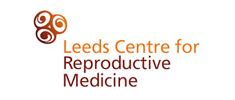I thought I would share some interesting new data, recently published by the Office for National Statistics (ONS), about the number and age of women giving birth in the UK.
Here are the facts:
Women over 40 are having more babies than the under 20s for in the first time in nearly 70 years. These are official figures for England and Wales.
There were 697,852 live births in 2015.
There were 15.2 births per 1,000 women aged over 40, compared with just 14.5 per 1,000 women in their twenties.
The last time the over 40s had the higher fertility rate was in 1947, in the wake of WWII.
The figures show two key trends in who is having children and when they have them.
Teenage pregnancy Is In Decline
Firstly, it is good to see that the teenage pregnancy rate has been in long-term decline and has more than halved from the 33 births per 1,000 teenagers in 1990.
Pregnancies For Older Mothers Have Increased
Secondly, pregnancies have soared in older age groups from 5.3 per 1,000 in 1990. The average age of having a child is now 30.3 – a figure that has been increasing since 1975.
The ONS says that advances in fertility treatment, as well as more women in higher education and attitudes around the importance of a career and the rising costs of childbearing, are behind the rise.
Liz McLaren, head of vital statistics outputs at the ONS, said: “The trend for women to have babies at older ages continued in 2015. Over the last 40 years, the percentage of live births to women aged 35 and over has increased considerably. Women aged 40 and over now have a higher fertility rate than women aged under 20 – this was last recorded in the 1940s.”
The data also shows that fertility rates have dropped in all age groups under 25, while increasing for all age groups 30 and over. Women aged between 30 and 34 have the highest fertility of any age group – with 111 births per 1,000 women.
The number of births to women born outside the UK has also continued its rise, reaching 27.5% of all births.
The British Pregnancy Advisory Service said: “The trend towards older motherhood is here to stay, and there are many understandable reasons why women today are waiting longer to start or expand their families than those in previous decades.Rather than bemoaning this development, we should seek to understand and support the decisions women make. More affordable childcare and improved maternity rights may make it easier for some women to start their families earlier if they wish, but we also need to ensure we have high quality reproductive healthcare services configured to meet women’s needs, whatever the age at which they conceive.”
Couples Need To Make Informed Choices About When To Have A Baby
In my view, these new statistics illustrate the fact that women are having babies later in life, a trend that has occurred over the last few decades. For a range of social, professional and financial reasons, women are starting families at an older age and this trend is unlikely to be reversed. As healthcare professionals, our role is to advise both men and women about the implications that maternal age can have for fertility, pregnancy and birth and enable couples to make informed decisions about when to plan a family.
We know that female fertility starts to decline gradually from the late 20s and more rapidly from the mid-30s onwards. While the risks should never be overplayed, men and women should be aware that reproductive outcomes are worse in older women. As well as it potentially taking longer to get pregnant, later maternity can involve a greater risk of miscarriage, a more complicated labour, and medical intervention at the birth.
Fertility Treatments Don’t Work For Everybody
Although fertility rates for women aged 40 and above have been generally rising fast, this is contributed to by fertility treatments, and natural fertility among women in their 40s is still considerably lower than for women in their 30s. Furthermore, treatments such as IVF don’t work for everybody and success rates also decline with increasing female age.
Fertility Education Initiative – A New Education Programme By The British Fertility Society
The British Fertility Society (BFS), of which I am Chair, is committed to raising awareness among young people around their reproductive health. We have recently set up a new taskforce called the Fertility Education Initiative, to ensure that the knowledge components of sex and relationship education not only cover how to avoid pregnancies and sexually transmitted infections, but also include information about fertility to help people plan for their future.










